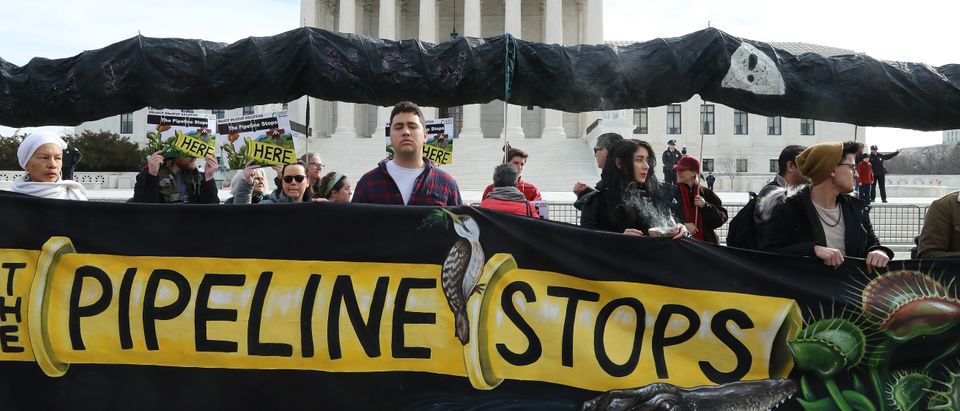The Supreme Court ruled Monday that a permit for the Atlantic Coast Pipeline, a proposed natural gas pipeline which would be built under the Appalachian Trail, would be reinstated.
In a 7 to 2 decision, the justices tossed out a decision from a lower court and ruled that the U.S. Forest Service can grant rights-of-way for developers in land within national forests, the Associated Press reported. Energy companies and the Trump administration supported reinstating the permit, while environmental groups opposed it.
BREAKING NEWS: #ACPipeline just won a major victory in the Supreme Court! Read more about the #SCOTUS decision and our path forward here:https://t.co/tDhe1cPUAp pic.twitter.com/KrgP7xMrFI
— Atlantic Coast Pipeline (@ACPipeline) June 15, 2020
The Atlantic Coast Pipeline, which would run underground for 600 miles and pass through federal land, is a joint venture financed by Dominion Energy, Duke Energy and Piedmont Natural Gas. Supporters of the pipeline argue that the project would revitalize economic development in Virginia, West Virginia and North Carolina by creating new jobs and cutting energy costs.
The pipeline’s construction has already created 17,000 new jobs and $2.7 billion in economic activity, and is projected to generate $28 million in property tax revenue annually, according to the project’s website. The United States is one the world’s largest producers and consumers of natural gas, and advocates say it is a cleaner energy source and an important economic asset.
The pipeline has been challenged in the courts since its inception in 2014. Environmental groups like the Sierra Club have argued that building energy projects through national parks would “scar pristine landscapes, put numerous rivers and streams at risk of increased sedimentation and harm sensitive species.”
Others have argued that the Atlantic Coast Pipeline permit requests do not meet environmental review standards, citing inadequacies in the project’s environmental impact statement to the Federal Energy Regulatory Commission.
The Fourth U.S. Circuit Court of Appeals revoked the permit earlier this year, ruling that only Congress could authorize rights-of-way for pipelines on federal land. West Virginia Attorney General Patrick Morrisey had strongly urged the Supreme Court to take up the case, the Associated Press reported.
“The appeal court’s decision has devastating effects for West Virginia,” Morrisey said. (RELATED: Rev. Jesse Jackson Bucks Environmentalists, Pushes Natural Gas Pipeline As Black Neighborhoods Struggle With Sky High Energy Prices)
The lower court’s decision, however, cited a law from 1920, which the Supreme Court did not uphold in its decision Monday. Writing the majority opinion, Justice Clarence Thomas said the “Forest Service had the authority to issue the permit here.” Justices Sonia Sotomayor and Elena Kagan were the two dissenting voices.
The Southern Environmental Law Center, which represented various environmental groups during legal proceedings at both the appeals court and the Supreme Court, said they were disappointed with the outcome. However, the group said it was confident that the pipeline “is not a viable project” in a statement released Monday.


